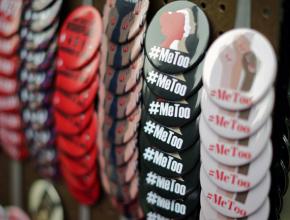Saying #MeToo in Maine
reports from Portland on a meeting at the University of Southern Maine that took up the issue of sexual assault and how to confront it.
AS THE #MeToo movement has swept the country, events in Maine have shown that action against sexual violence and violence against women is desperately needed here. A panel discussion at the University of Southern Maine (USM) in Portland on March 20 brought together students and community members to talk about how activists can respond on campus.
According to the Maine Coalition Against Sexual Assault, 14,000 Mainers will experience sexual violence in any given year, although less than 400 of these crimes are reported. In 2015, Maine ranked ninth in the country for the rate of women residents killed by men, despite its low crime rate overall.
This shows that even when official crime rates are low, sexual assault and intimate partner violence remain huge issues endangering Mainers, particularly women.
Sexual violence and violence against women have made the headlines in Maine recently as women fight back and as conservative voices push to maintain the deplorable status quo.
An anonymous woman recently filed suit against USM over its failure to investigate two sexual assaults she reported on its campus when she was a student there in 2012.

At the University of Maine, two male professors were placed on paid administrative leave due to vaguely described "complaints from students" and "confidential concerns."
Meanwhile, ultra-conservative Gov. Paul LePage offered David Sorensen, who resigned as a speechwriter for Trump following his ex-wife's allegations of abuse, his former job back.
Before going to work for Trump, Sorensen had been a staffer for LePage. LePage played into the long history of abusers' stories being believed over those of survivors, stating, "I am 100 percent behind [Sorensen]."
IN THIS context, students, faculty, staff, alumni and community members gathered on March 20 for a panel discussion at USM's Portland campus entitled "#MeToo: The Fight Against Campus Sexual Assault."
The panel was co-hosted by the Portland International Socialist Organization (ISO) and student groups Queer/Straight Alliance and Huskies for Reproductive Justice. In addition to speakers from these groups, the panel included the campus advocate of Family Crisis Services, the local domestic violence agency.
Panelists spoke on a range of issues, from disproportionate rates of sexual violence against queer and trans people, to the roots of women's oppression, to personal stories of survival and resistance.
Panelists and audience members working with sexual assault and domestic violence agencies and for the university shared resources available to students. Students and alumni shared their perspectives on Title IX compliance at USM and the sexual assault prevention programming provided at USM.
Attendees seemed eager to take more action against sexual violence. Questions were raised about what can be done to fight back and what it will take to create a society free of sexism. Organizers at the panel hope this event will build a conversation around sexual assault at USM and that the momentum will carry forward into other planned actions.
Huskies for Reproductive Justice and the QSA are organizing a SlutWalk to take place in April, and the Portland ISO is bringing a national speaker to talk about how to fight back against sexual assault on college campuses.
This conversation and action at USM is a step toward a fighting women's movement in Maine. We need a movement that makes the connections between the violence against women in the state and the fact that the poverty rate for women in Maine is 14.3 percent--we need to fight for freedom from violence as well as economic justice for women.
In a rural state where 55 percent of women live in counties without an abortion clinic, we need to lay the groundwork for expanding reproductive rights.
The conversations and events that students and community members at USM are leading can and should be a building block toward such a movement.


